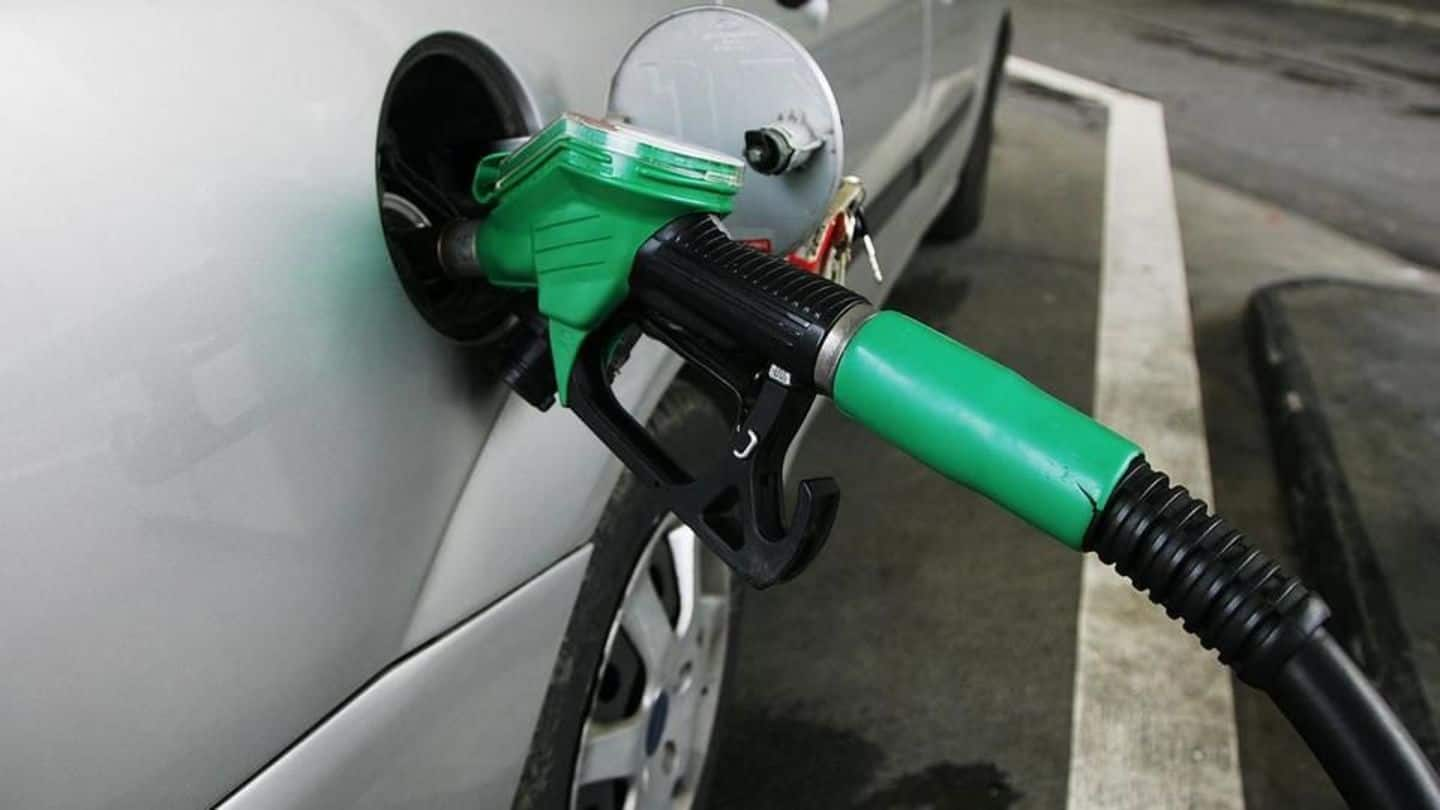
Dynamic fuel pricing: As people suffer, Oil Ministry stands back
What's the story
Petrol and diesel prices touched a three-year high this week. On September 11, Delhi residents paid Rs. 70.38/L for petrol; the last time price touched such heights was September'14.
However, crude oil cost $96 a barrel then, compared to the current $53.
Adding to people's woes, the Oil Ministry has refused to intervene.
What effect has the daily price revision policy had on citizens?
2014
Recent history of fuel prices around the world and India
In the 2000s, US began to commercially produce shale gas. When the boom hit various economies, prices of crude oil plunged from $115 a barrel in 2014 to $36 in 2015.
However, in India, the fall has been offset by steadily-increasing taxes. Central excise duty was raised nine times during November'14-January'16.
The corresponding tax mop rose from Rs. 99,000cr (2014-15) to Rs. 2,42,000cr (2016-17).
Dynamic pricing
The daily price revision policy
In June'17, despite opposition from the All India Petroleum Dealers' Association, the government enforced the dynamic fuel pricing policy based on "positive feedback on a pilot project".
Before that, prices were revised fortnightly to reflect international prices.
Dynamic pricing generally works well for consumers by keeping price-fixing powers away from private companies.
However, in case of major international events, prices may go up steeply.
Aftermath
From June 2017 to September 2017
In the last two months, petrol price in Delhi has increased by Rs. 4.90/L: rates went up from Rs. 65.48 in June to Rs. 70.38 a couple of days ago.
In Mumbai, petrol cost Rs. 79.41 on September 11. The last time it touched similar levels was in August 2014.
Rates were high in Kolkata (Rs. 73.05) and Chennai (Rs. 72.87) too.
Do you know?
Does this reflect actual rates?
According to Hindustan Times, a price break-up for fuel in Delhi shows state-run oil companies charge dealers just Rs. 30.70 a litre. The remaining Rs. 40 is made up by excise duty, state VAT and dealers' commission.
Impact
Higher taxes maybe beneficial, but is it true for India?
High fuel taxes can be good for several reasons: it can motivate a shift to cleaner energy, and can keep prices in check even when international prices are high, among others.
However, the impact on consumers is the opposite: higher fuel prices eventually lead to inflation.
In a country like India where 95% qualifies as poor or low-income, life is heavily dependent on price-rise.
Pradhan
What's the oil ministry's stand?
Oil Minister Dharmendra Pradhan has refused to step in despite rising prices. According to him, "It's not in the public's interest for the government to intervene in day-to-day businesses of oil marketing companies."
He has attributed the rising prices to Hurricanes Harvey and Irma, which have caused "a 13% decline in global refining capacity".
He expects price to cool down in the next days.
Future
Is relief likely for the common people?
Dynamic fuel pricing can work well for both consumers and producers. Political influences on oil prices have also been removed.
However, if the majority is suffering because of it, is it worth sustaining? Or will it end up like demonetization, which caused severe sufferings as well as economic losses?
If the finance ministry cuts taxes, the situation can still be somewhat better.